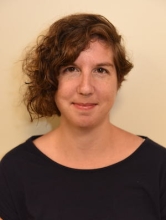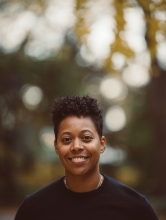By Jules Csillag and Lindsey Foster
"I want to ask you what it would mean not to 'allow in' or 'think about bringing people in.' From the moment you start thinking about bringing people in, as Sara Ahmed points out, you're pointing out somebody is not at home. That somebody has to go out of their way for you, to welcome you, to 'include' you. You're almost making the power dynamic stronger. What happens if you assume equity?" -Alice Sheppard (she/her)
The past school year and a half wasn't easy for access either. Not all students had a safe and comfortable place to stay. Not all families had good WiFi or devices they could use for school. This is especially unfortunate since “we can learn to develop technology and set up structures to make sure that everyone has access," as Haben Girma (she/her) has said.
Schools currently view the "beliefs and cultural values of White, Western European, protestant, heterosexual, able-bodied cis-gendered males as what is 'normal.'" We wish, instead, that all students could have opportunities to learn, to thrive, and to be celebrated. When considering access, being purposeful is important. What makes one person's needs "special" is that their needs aren't usually supported, but this is on purpose. Some people's needs are more likely to be met because of their privileges (listed in the beginning of this paragraph).
Regardless of someone's access needs, educators are invited to presume competence and allow students to learn and grow from their experiences. Also, push back on the "[t]he misconception that sitting, speaking, or being able to answer questions in an errorless way is necessary to learn academics....and so much else" as TJ (she/they/them/her) stated.
Therefore, in addition to the strategies below, we invite you to look around your learning spaces: What are some things that may make it not accessible for disabled individuals? Be sure to look for potential barriers for diverse disabilities. Then, as a class, actively work towards removing these barriers from your physical and mental spaces. Encourage participation from all students in ways that are relevant to them. This avoids it seeming like "charity." Work as a community so this is work that can continue.
Typically, when we think of access and schools, people's minds go to audiobooks, extra time on test, or hearing aids. These are important tools for some students' learning, but they're not everything. Eddie Ndopu (he/him) makes an important point about fighting for all people to be free when he says, “I am not just talking about ramps, braille and sign language...This is also about giving people with disabilities access to things like joy, love and closeness." (Also a focus of this Metro blog on Lessons Learned from Black Communities.)
As in the previous post, We learned from disabled Black artists, activists, scholars, and more to come up with practice strategies for your schools. We encourage you to apply them if they are relevant. We also want to invite you to continue to learn from disabled BIPOC (Black Indigenous People of Color). If you're not sure where to start, the links within this series may be a good starting place.
Respect Students' Freedom
“It’s been my experience that there are far too many persons who are close to disability, but who don't have actual lived experience of disability. Lived experience would change their perspective in big ways. That is problematic. These persons are deciding what's best of others, but without learning form those who have lived it." -Heather Watkins (she/her)
| Instead of... | Try... |
| Assuming you know what your students want or need. Things like how they should learn, what is "good for them," what's best for their body and/or their mind | Supporting students' self-determination, which is their right to make decisions for and about themselves. This can include the tips from the previous blog's tips about Resistance & Solidarity (Fighting Back and For Each Other), and:
|
Appreciate difference(s)
"Many think of changes in technology and laws and expectations as the solution. But that's not enough to address the shame around disability. This is why people with disabilities need to look beyond these basic approaches to revolutionary (meaningful and different), ongoing change."- Lateef McCleod (he/him)
| Instead of... | Try... |
|
Celebrate differences and recognize how necessary they are to communities:
|
Interdependence (Relying on each other)
“My name is Riah, & I need a team of people in order to function properly. If I would have known that this was a regular way for people to live, I would have been able to avoid a lot of trauma & pain. Show that it's okay to need supports; On big & small scales." -Riah Person (they/she)
| Instead of... | Try... |
| Focusing on and valuing independence above all | Value interdependence (relying on each other), which isn't to be confused with a lack of freedom and being able to make choices
|
We hope that this series (Part 1: The Here & Now, Part 2: Focus on Freedom, Fighting Back, and Joy, and Part 3: Beyond Accommodations) has proven that what you're already doing is helpful. We hope it's also given you something to think about and act on. So we invite you to share examples of each of these tips in your spaces! Redesign your classroom spaces with different types of seating? Organize a protest with community members? Co-create a lesson about disability justice with your students? Share it with NYU Metro Center (on Twitter or Instagram), or the authors (Jules on Twitter or Instagram; or either author with their emails, below).



